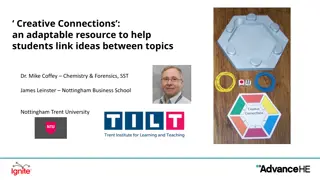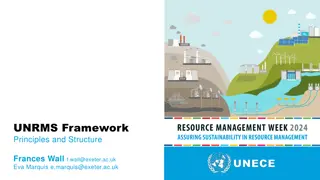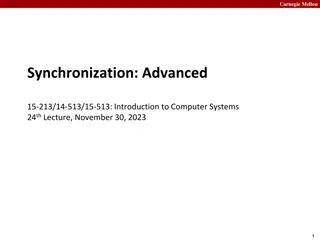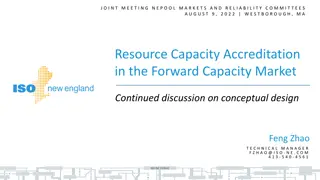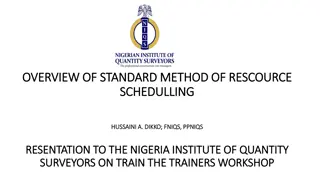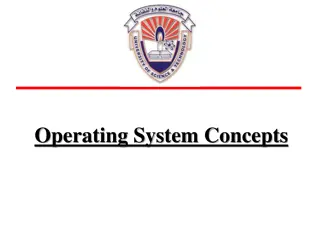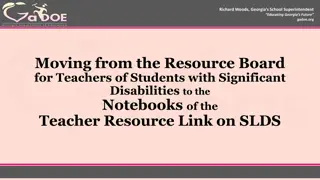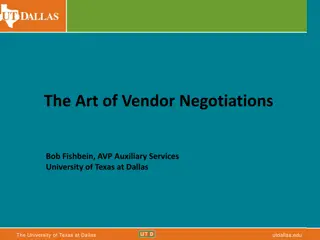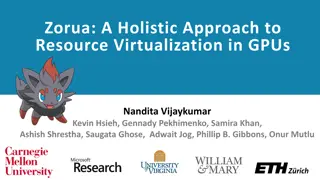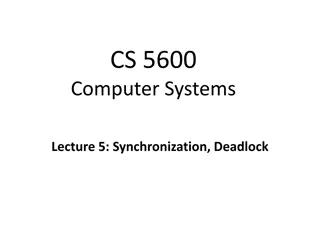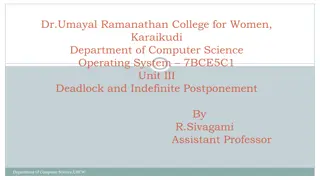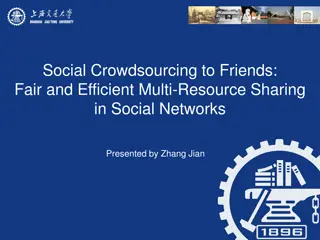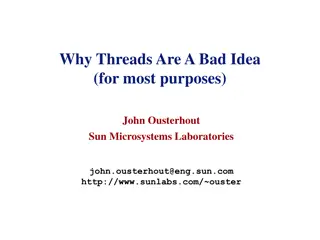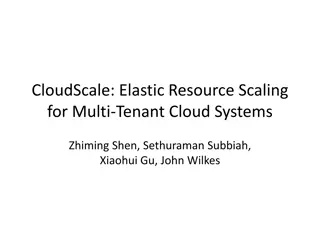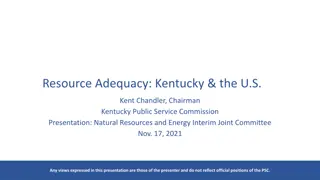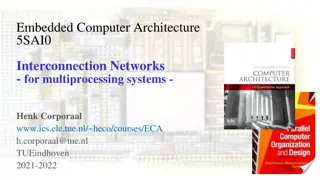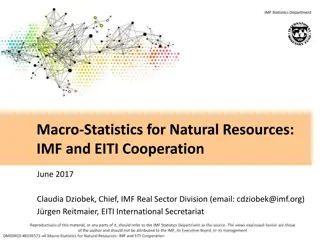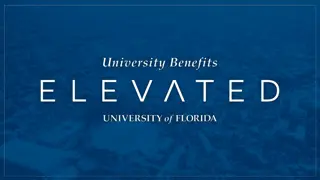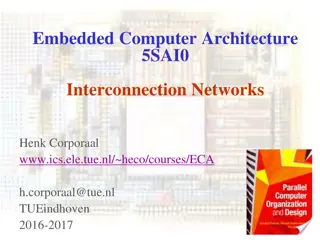Firm Fuel Requirements and Gas Resource Qualification
Explore gas resource capacity accreditation, firm fuel arrangements, and new qualification rules for gas-only or dual-fuel resources in gas-constrained winter periods. Enhancements proposed by ISO-NE aim to improve accuracy for resource modeling in the winter season.
0 views • 30 slides
Audiobook⚡ Cultural Resource Management: A Collaborative Primer for Archaeologis
\"COPY LINK HERE ; https:\/\/getpdf.readbooks.link\/1789206529\n\nRead ebook [PDF] Cultural Resource Management: A Collaborative Primer for Archaeologists | Cultural Resource Management: A Collaborative Primer for Archaeologists\n\"\n
1 views • 6 slides
About this resource
Dive into the world of Scottish myths and legends with this PowerPoint resource containing four engaging lessons to accompany "An Illustrated Treasury of Scottish Mythical Creatures" by Theresa Breslin. Learn about the differences between myths and legends, how they travel, their meanings and morals
0 views • 51 slides
Resource Capacity Accreditation in the Forward Capacity Market
The presentation discusses the Resource Capacity Accreditation (RCA) project in the Forward Capacity Market (FCM) by ISO-NE, aiming to improve accreditation processes to support a clean-energy transition. It emphasizes modeling and accrediting gas and oil resources for resource adequacy as the energ
0 views • 38 slides
Efficient Resource Mobilization and Management Strategies by Dr. Abraham Maliet Mamer
This content discusses efficient resource mobilization and management strategies, emphasizing the importance of understanding the typical cycle of resource regime, defining resources, identifying resources, and mobilizing resources effectively. It provides insights into resource allocation methodolo
1 views • 12 slides
Resource Allocation Review Webinar: Enhancing School Improvement Practices
Delve into the essential aspects of Resource Allocation Reviews in the educational setting through this webinar provided by the Office of School and District Improvement. Gain insights on the requirements, tools, and significance of conducting Resource Allocation Reviews to enhance school improvemen
0 views • 25 slides
‘Creative Connections’: an adaptable resource to help students link ideas between topics.
This presentation showcases "Creative Connections," an adaptable resource designed to help students link ideas between topics in education. Developed by Dr. Mike Coffey from Chemistry & Forensics and SST James Leinster from Nottingham Business School at Nottingham Trent University, this resource aim
2 views • 20 slides
ERCOT Resource Integration Recommendations for Quarterly Stability Assessment
ERCOT's Resource Integration Working Group, led by Jenifer Fernandes, outlines important guidelines and deadlines for Quarterly Stability Assessments (QSA) and synchronization of generation resources. The group emphasizes the proper planning and review processes to ensure the reliability of the grid
4 views • 13 slides
Comprehensive Overview of UNRMS Framework and Principles
UNRMS (UN Resource Management System) aims to promote sustainable resource management globally through innovative frameworks and principles. It encompasses various natural resources and supports sustainability at different scales. Stakeholders can use it to assess projects against environmental, soc
5 views • 10 slides
Carnegie Mellon Synchronization and Computer Systems Lecture Updates
Carnegie Mellon's recent announcements include lab checkpoints and finals deadlines, as well as the release of an optional lab extension for the Shark File System. The lecture topics cover races, mutual exclusion, deadlock, semaphores, events, queues, reader-writer locks, starvation, and thread-safe
0 views • 43 slides
Understanding Deadlocks in Operating Systems
Deadlocks in operating systems occur when processes hold resources and wait for others, leading to a state where none can progress. Processes may hold resources while requesting more, resulting in a standstill known as a deadlock. This deadlock arises from conditions like mutual exclusion, hold and
0 views • 25 slides
Forward Capacity Market Resource Capacity Accreditation Discussion
Discussion on improvements to resource capacity accreditation in the Forward Capacity Market to support a reliable, clean-energy transition by accrediting resource contributions effectively as the resource mix evolves. Covers conceptual design, stakeholder schedule, and review of proposed enhancemen
0 views • 61 slides
Understanding Database Deadlocks and Detection
Database Management Systems (DBMS) often face deadlocks, which are situations where transactions are waiting for each other to release data items, leading to a cycle in the wait-for graph. Deadlocks can be detected by analyzing the wait-for graph periodically. If a deadlock is detected, a victim tra
0 views • 10 slides
Population Resource Regions and Zelinsky's Classification
Geographers have long studied the relationship between population growth and resource adequacy, leading to the concept of Population Resource Regions (PRR) by W. Zelinsky. Zelinsky identified five types of PRR based on population-resource ratios, ranging from Type A with high resource utilization po
0 views • 8 slides
Introduction to Resource Management in Construction Industry
The construction industry operates in a dynamic environment with time, money, and resource constraints. This chapter focuses on resource management, optimization methods, and applications in construction. It covers the definition of resources, types of resources, and the importance of optimization i
2 views • 15 slides
Overview of Standard Method of Resource Scheduling for Effective Project Management
Resource Schedule Documents (RSD) prepared using Standard Method of Resource Scheduling 1 (SMRS 1) facilitate efficient allocation, planning, and management of resources. The RSD includes sections detailing employer and contractor responsibilities, material issues, method statements, and charges. SM
0 views • 9 slides
Understanding Deadlock: Conditions, Detection, and Avoidance
Explore strategies for dealing with deadlocks, from detection and recovery to dynamic avoidance. Learn about deadlock avoidance methods like being conservative in resource granting and dive into safe and unsafe states, the Banker's algorithm, and the four conditions for deadlock. Discover how to pre
0 views • 15 slides
Understanding Deadlock Avoidance in Operating System Concepts
Deadlock Avoidance is a critical concept in operating system design to prevent system resources from entering a deadlock state. By requiring additional information about resource requests and utilizing algorithms like the banker's algorithm, systems can dynamically allocate resources to avoid circul
1 views • 29 slides
Understanding Deadlock in Shareholders Disputes
Shareholders disputes leading to deadlock can be legally complex, potentially resulting in the winding up of a company. The concept of deadlock encompasses functional deadlock, based on the shareholders' inability to cooperate effectively, and irretrievable breakdown of trust and confidence. Differe
3 views • 16 slides
Understanding the Economic Problem: Choices and Resource Allocation
This comprehensive study covers key concepts in economics, such as the economic problem, cost-benefit analysis, resource scarcity, production possibilities, and distribution of resources. It delves into the importance of costs and benefits in decision-making, categorizing them, and identifying varia
0 views • 16 slides
Understanding the Importance of 4-H Natural Resource Clubs for Youth Development
Exploring the significance of 4-H Natural Resource Clubs through insights from surveys conducted among 4-H members, Extension Educators, and Natural Resource Professionals. The data highlights motivations, barriers, and suggested resources to enhance participation in natural resource projects, empha
0 views • 17 slides
Moving Instructional Tasks to Teacher Resource Link - Richard Woods, Georgia's School Superintendent
Richard Woods, Georgia's School Superintendent, is transitioning ELA and Math instructional tasks for students with significant disabilities from the Resource Board to the Teacher Resource Link (TRL) accessible through SLDS. Science and Social Studies items will soon be available on TRL as well. The
1 views • 12 slides
Understanding Synchronization Methods in Computing
Exploring synchronization methods like mutual exclusion, deadlock, starvation, and hardware mutex support in computing. Learn about critical sections, preventing race conditions, and the challenges of synchronization. Consider the Test and Set method, its benefits and drawbacks, and the importance o
0 views • 24 slides
Mastering Vendor Negotiations with Bob Fishbein at University of Texas at Dallas
Explore the art of vendor negotiations through the expertise of Bob Fishbein, the AVP of Auxiliary Services at the University of Texas at Dallas. Discover negotiating mindsets, positions of power, strategies for deadlock situations, the impact of cultural differences, and essential do's and don'ts.
0 views • 18 slides
Zorua: A Holistic Resource Virtualization in GPUs Approach
This paper presents Zorua, a holistic resource virtualization framework for GPUs that aims to reduce the dependence on programmer-specific resource usage, enhance resource efficiency in optimized code, and improve programming ease and performance portability. It addresses key issues such as static a
0 views • 43 slides
Discovering Techniques for Detecting Deadlock Bugs in Concurrent Programs
This analysis delves into various bug detection techniques for concurrent programs, focusing on deadlock bugs. It explores model checking and testing techniques, discussing their precision, error detection capabilities, and scalability challenges. The prevalence of deadlock bugs in real-world applic
0 views • 35 slides
Techniques for Detecting and Analyzing Deadlock Bugs in Concurrent Programs
Analysis of deadlock bug detection techniques in concurrent programs, highlighting the prevalence of deadlock bugs in real-world applications. The content discusses various bug detection approaches, including model checking and testing techniques, along with the challenges and solutions related to s
0 views • 32 slides
Understanding Parallelism in Computer Systems
This content delves into various aspects of parallelism in computer systems, covering topics such as synchronization, deadlock, concurrency vs. parallelism, CPU evolution implications, types of parallelism, Amdahl's Law, and limits of parallelism. It explores the motivations behind parallelism, diff
0 views • 48 slides
Dining Philosophers Problem and Mutual Exclusion Solutions Review
This lecture discusses the Dining Philosophers Problem, a classic synchronization issue in computer science. It covers various solutions for achieving mutual exclusion, including software-based solutions like Peterson's algorithm and hardware-based solutions like Test-and-Set (TSL/XCHG). Additionall
0 views • 17 slides
Understanding Deadlock in Operating Systems
Deadlock is a critical issue in operating systems where processes are unable to progress due to unfulfilled dependencies. This content explores deadlock scenarios, including traffic deadlock and resource deadlock, and explains the implications within spooling systems. Common deadlock examples and pr
0 views • 25 slides
Fair and Efficient Multi-Resource Sharing in Social Networks
This paper explores the concept of fair and efficient multi-resource sharing in social networks, presenting a credit market-based framework for charge-free computing resource sharing. It addresses the challenges of escalating data volumes and the need for collaborative resource allocation strategies
0 views • 21 slides
Why Threads Are a Bad Idea for Most Purposes - John Ousterhout's Perspective
John Ousterhout, from Sun Microsystems Laboratories, argues that threads are difficult to program and manage due to challenges like synchronization, deadlock, and breaking abstraction. He suggests using events over threads for most purposes. Threads should only be used when true CPU concurrency is n
0 views • 15 slides
CloudScale: Elastic Resource Scaling for Multi-Tenant Cloud Systems
CloudScale is an automatic resource scaling system designed to meet Service Level Objective (SLO) requirements with minimal resource and energy cost. The architecture involves resource demand prediction, host prediction, error correction, virtual machine scaling, and conflict handling. Module 1 focu
0 views • 37 slides
Challenges of Flow Rate Fairness in Network Resource Allocation
Addressing the concept of flow rate fairness in network resource allocation, this content explores its limitations and challenges. Despite being a goal in protocols like TCP, the practicality and enforceability of flow rate fairness are questioned. It highlights the inadequacy of flow rate as a meas
0 views • 15 slides
Resource Adequacy in Kentucky and the U.S.: Regulatory Insights
Presentation by Kent Chandler, Chairman of the Kentucky Public Service Commission, highlighting the significance of resource adequacy in ensuring reliable electricity supply. The role of regulatory agencies like PSC in reviewing utility investments, integrated resource planning, and the distinction
0 views • 14 slides
Interconnection Networks in Multiprocessing Systems Overview
Explore the intricacies of interconnection networks for multiprocessing systems in Embedded Computer Architecture, covering connecting processors, topologies, routing, deadlock, switching, and performance metrics like bandwidth and latency. Delve into various network types, such as on-chip networks
0 views • 33 slides
IMF Statistics Department - Natural Resources Statistical Tools
IMF Statistics Department has developed two statistical tools, the Revenue Template and National Accounts Template, to help countries analyze government revenues and natural resources in national accounts. These tools are crucial for policymaking in countries heavily reliant on natural resource reve
0 views • 9 slides
Employee Community Resources at UF: Family Resource Coordinator Services
Providing UF employees access to valuable community resources through the Family Resource Coordinator, including discounted services for childcare, housing, health & wellness, transportation, entertainment, campus discounts, food, and more. Additional on-campus resources such as the Field and Fork P
0 views • 6 slides
Understanding Interconnection Networks in Embedded Computer Architecture
Explore the intricacies of interconnection networks in embedded computer architecture, covering topics such as connecting multiple processors, topologies, routing, deadlock, switching, and performance considerations. Learn about parallel computer systems, cache interconnections, network-on-chip, sha
0 views • 43 slides
Enhancing Capacity Planning for Peak Demand and Flexible Resource Requirements
Addressing the challenges in identifying capacity needs for utilities and regions, the discussion covers PowerSimm's approach compared to other modeling tools, resource capability characterization, and regional resource sharing opportunities. The article also reviews comments on NorthWestern's syste
0 views • 17 slides






